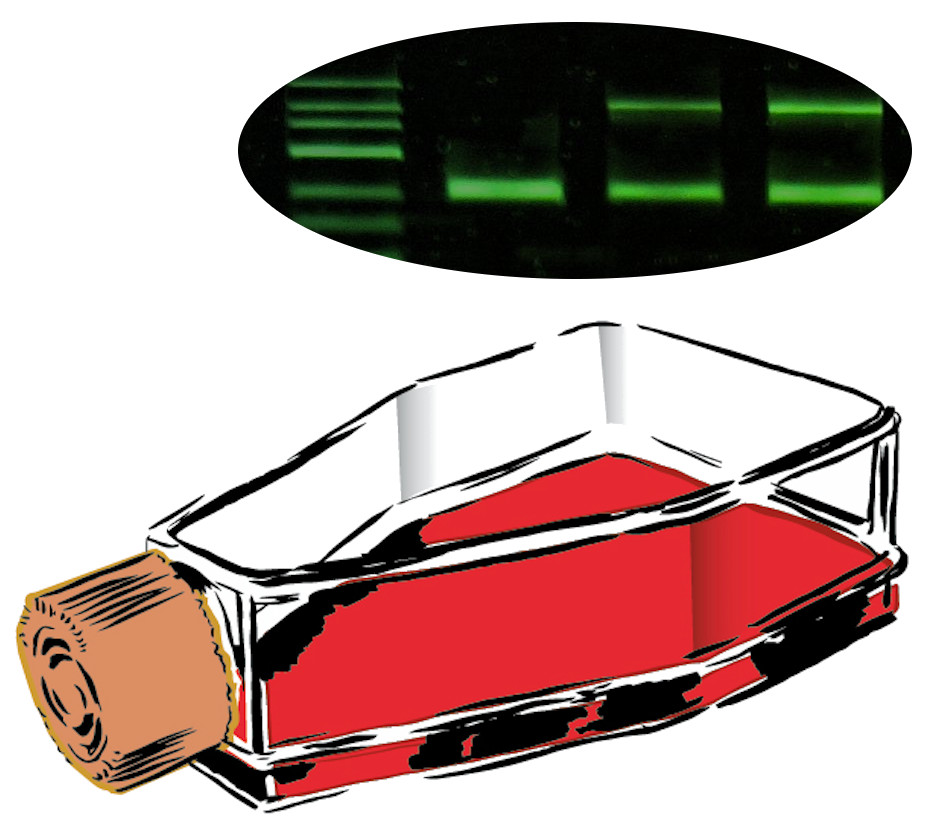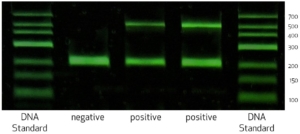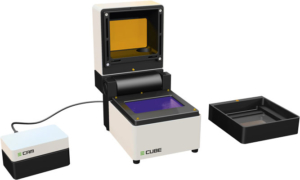Mycoplasma PCR Test Kit
Code No.: PC-7201
Packing contains reagents for 10 tests
10 sample tubes with lyophilized PCR batch
500 µl PCR grade water
Mycoplasma PCR Test Kit
Time efficient – results in 2.5 hours
Only few steps of pipetting
Direct use of diluted cell culture supernatant
No DNA isolation and purification
Mycoplasma – microbiological parasites in your cell culture
Mycoplasma, such as M. orale, M. pulmonis, M. hyorhinis, M. salivarium, M. arginini, M. hominis, M. arthritidis, M. fermentans, M. bovis, M. pneumoniae, M. pirum and M. capricolum, as well as Spiroplasma and Acholeplasma species, are prokaryotic parasitic living microorganisms.
One of the biggest threats for cell culture is a mycoplasma contamination. This contamination is relatively common and can persist for a long time while remaining undetected. One infected culture can infect other cultures when improper working techniques are used. Mycoplasma contamination in cell cultures is unwanted, because of the influence in cell metabolism and proliferation. Out of this reasons it is necessary to control every cell culture continuously time by time. Putting new cell lines into quarantines followed by mycoplasma detection is a good barrier for realizing clean cell cultures.
Lyophilized PCR Kit for detection of Mycoplasma ssp.
Primer, nucleotides including dUTPs, Uracilglycosylase, internal control and Taq-Polymerase are pre-mixed and aliquoted into 0.2 ml PCR tubes. Afterwards this mixture is freeze dried and stable up to one year at room temperature. For rehydration only the addition of 22 µl PCR grade H2O is needed and the PCR batch is ready to use. Three microliter of the diluted supernatant must be added and the sample is ready for the amplification.
Analyzing PCR products with the gel-electrophoresis system E-CUBE
References
- Uphoff CC, Drexler HG. (2002) Comparative PCR analysis for detection of mycoplasma infections in continuous cell lines. In Vitro Cell Dev Biol Animl. 38(2): 79-85.
- Uphoff CC, Drexler HG. (2004) Detecting Mycoplasma contamination in cell cultures by polymerase chain reaction. Methods Mol Med. 88: 319-326.
- Uphoff CC, Drexler HG (2011) Detecting mycoplasma contamination in cell cultures by polymerase chain reaction. Methods Mol Biol. 2011;731:93-103.
- Uphoff CC, Drexler HG (2014) Detection of Mycoplasma contamination in cell cultures. Curr Protoc Mol Biol. 2014 Apr 14; 106:28.4.1-14.
Only for in vitro use!


